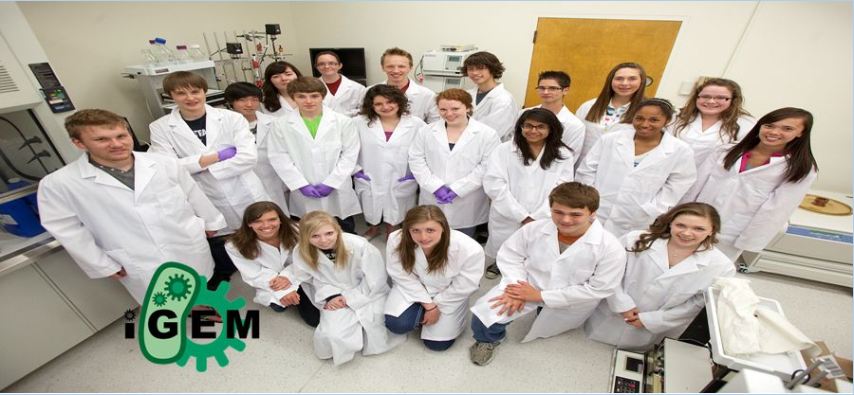Team:Lethbridge Canada
From 2012hs.igem.org
Erin.kelly (Talk | contribs) |
(→Attribution) |
||
| (9 intermediate revisions not shown) | |||
| Line 5: | Line 5: | ||
</html> | </html> | ||
{| style="color:#000000;background-color:#b5cde2;" cellpadding="6" cellspacing="3" border="0" bordercolor="#00FFFF" width="65%" align="center" | {| style="color:#000000;background-color:#b5cde2;" cellpadding="6" cellspacing="3" border="0" bordercolor="#00FFFF" width="65%" align="center" | ||
| - | !align="center"|[[Image: | + | !align="center"|[[Image:Home.JPG|center|854px]] |
|} | |} | ||
| Line 49: | Line 49: | ||
|} | |} | ||
| - | == '''Attribution''' == | + | =='''Attribution'''== |
| + | |||
| + | These people and institutions were vital in making the Lethbridge High School iGEM experience both possible and enjoyable: | ||
| + | |||
| + | University of Lethbridge - use of facilities | ||
| + | |||
| + | Dr. Hans-Joachim Wieden - advising, arranging funding, and administration | ||
| + | |||
| + | Kim Orr- advising, organizing, as well as planning the trip to Indiana for the Jamboree | ||
| + | |||
| + | University of Lethbridge iGEM Team - guidance and assistance with laboratory procedures | ||
| + | |||
| + | Isaac Ward - help in teaching students proper usage of the spectrophotometer | ||
| + | |||
| + | Nathan Dawson - advising | ||
| + | |||
| + | Alvin Lee- advising | ||
| + | |||
| + | Ben Vuong- advising | ||
| + | |||
| + | Justin Luu - advising | ||
| + | |||
| + | Sutherland Dube - advising, guidance, arranging lab times, and keeping everyone on the same page | ||
| + | |||
| + | |||
Latest revision as of 09:23, 17 June 2012

| Home | The Team | The Project | Results | Human Practices | Notebook | Safety |
|---|
Introduction |
| Insulin is a hormone produced by pancreatic beta cells that causes cell membranes to become more permeable to glucose. It helps regulate blood sugar levels in the body; more is secreted as more sugar enters the bloodstream after a meal is consumed. Insulin and glucagon (another pancreatic hormone that increases blood sugar levels) are partners in the negative feedback loop that control the body’s blood sugar concentration.
1) Construct 1 focuses on the glucose sensing and gene regulating mechanism. We will implement the global respressor Mlc in order to control the rate at which the insulin gene is transcribed. 2) Construct 2 focuses on insulin production and release. |
Attribution
These people and institutions were vital in making the Lethbridge High School iGEM experience both possible and enjoyable:
University of Lethbridge - use of facilities
Dr. Hans-Joachim Wieden - advising, arranging funding, and administration
Kim Orr- advising, organizing, as well as planning the trip to Indiana for the Jamboree
University of Lethbridge iGEM Team - guidance and assistance with laboratory procedures
Isaac Ward - help in teaching students proper usage of the spectrophotometer
Nathan Dawson - advising
Alvin Lee- advising
Ben Vuong- advising
Justin Luu - advising
Sutherland Dube - advising, guidance, arranging lab times, and keeping everyone on the same page
|
|
Sponsors
|
|---|
 "
"

